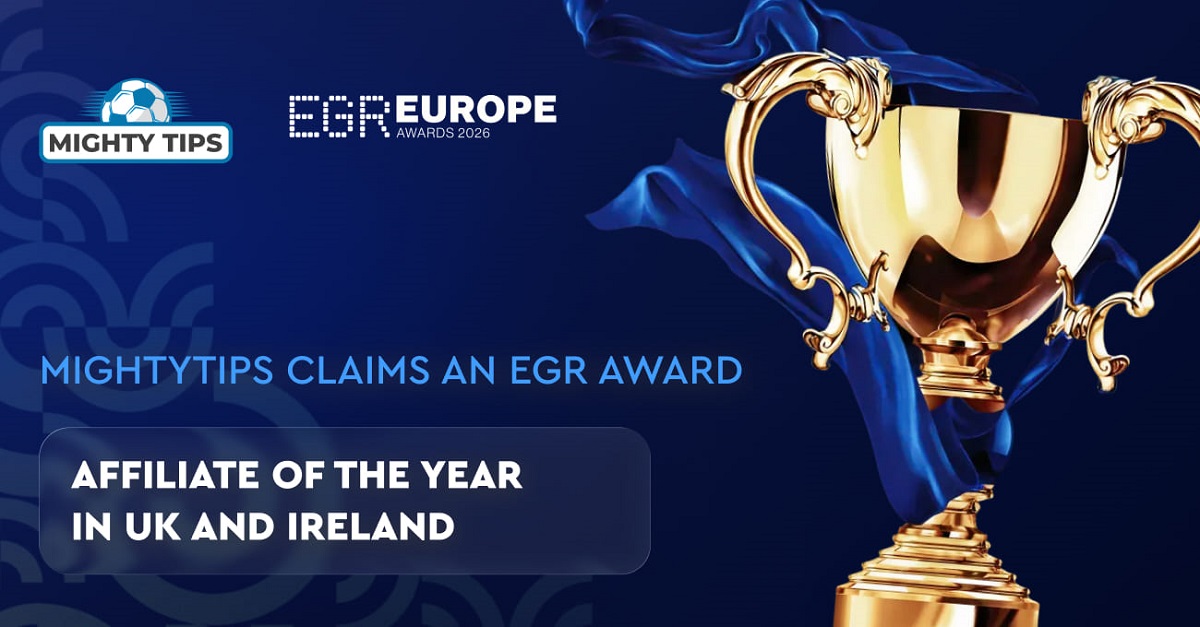Latest News
Majority of gamblers hit with affordability checks have handed over info, but wider betting population unwilling
- Most bettors asked to undergo financial checks agree
- Higher spending players more willing than lower spenders
- Most who’ve not yet faced affordability checks say they will refuse
The majority of bettors who have been asked for proof they can afford to gamble have provided it, but there are big questions over how things will play out if checks become mandatory or more common, the results of a new study by sports betting community OLBG show.
A survey of bettors carried out online by YouGov for OLBG found that the majority of those who had been asked by gambling operators to provide documents such as payslips, bank statements or other documents had complied with the request.
The survey, which polled 1,007 bettors, found that 21.8% of bettors had already been asked for documents by at least one bookmaker. Of these, 74.3% had provided them, but 17.9% had refused and started playing with a different licensed operator instead. Of the remainder, 4.1% refused and moved to an unlicensed operator, while 3.7% stopped betting entirely.
The willingness to provide documentation was less widespread among those who had not yet been asked to do so, however.
Of the 78.2% of punters who had not yet faced affordability checks, 37.3% said they would refuse and simply stop betting, 35.0% said they would move to a different licensed operator and 4.1% said they’d go to an unlicensed company. Only 23.5% indicated they would be willing to provide the documents.
“Most bettors who have been asked to provide documents have done so. More importantly, very few of those who were asked stopped gambling or went to the black market, the latter being the worst unintended consequence of measures aimed at making gambling more responsible,” said Richard Moffat, CEO at OLBG.
“However, there is a stark difference between those who have been asked and those who haven’t in terms of willingness.”
As the below table shows, overall 65% of bettors reported not being willing to comply with affordability checks. Those betting lower monthly amounts were the least open to handing over financial documents, with more than three in four (75.4%) of those betting less than £5 a month and 72% of those betting £6-15 a month unwilling to undergo affordability checks.
“Few people who are spending at this level are likely to think it is proportionate for a bookie to ask for proof they can afford it and it’s quite surprising how many lower spending players report already having been asked. From the rumours about what level mandatory checks might come in, it seems unlikely checks will be forced on players at levels under £100 per month,” said Moffat.
Players spending less than £100 per month
| Have you been asked by a gambling company to provide payslips, bank statements or similar documents as part of an affordability or proof of funds check? | All bettors | Less than £5 | £6-15 | £16-25 | £26-50 | £51-100 |
| Unweighted base | 1,007 | 235 | 224 | 147 | 154 | 93 |
| Yes, I have and I provided the required documents | 16.16% | 6.00% | 10.08% | 20.86% | 16.55% | 14.27% |
| No, I have not but I would provide the documents if asked | 18.45% | 18.20% | 18.06% | 23.14% | 20.31% | 21.62% |
| Yes, I have, but I didn’t provide the documents and bet with a different licensed company instead | 3.92% | 0.40% | 1.77% | 4.22% | 4.53% | 6.57% |
| Yes, I have but I didn’t provide the documents and bet with a different unlicensed company instead | 0.90% | 0.00% | 0.47% | 0.71% | 1.29% | 1.08% |
| Yes, I have but I didn’t provide the documents and stopped betting | 0.79% | 0.00% | 0.43% | 0.70% | 1.94% | 1.10% |
| No, I have not and if asked I wouldn’t provide the documents and would bet with a different licensed company instead | 27.40% | 20.40% | 31.52% | 24.80% | 35.25% | 38.36% |
| No, I have not and if asked I wouldn’t provide the documents and would bet with an unlicensed company instead | 3.20% | 1.30% | 3.57% | 4.17% | 3.27% | 1.11% |
| No, I have not and if asked I wouldn’t bet | 29.18% | 53.60% | 34.10% | 21.40% | 16.86% | 15.88% |
| Total willing to provide documents | 34.61% | 24.20% | 28.14% | 44.00% | 36.86% | 35.89% |
| Total unwilling to provide documents | 65.39% | 75.70% | 71.86% | 56.00% | 63.14% | 64.10% |
Players spending more than £100 per month
| Have you been asked by a gambling company to provide payslips, bank statements or similar documents as part of an affordability or proof of funds check? | All bettors | £101-200 | £201-300 | £301-500 | £501-1000 |
| Unweighted Base | 1,007 | 57 | 16 | 16 | 20 |
| Yes, I have and I provided the required documents | 16.16% | 30.04% | 31.87% | 50.63% | 40.65% |
| No, I have not but I would provide the documents if asked | 18.45% | 19.41% | 12.94% | 0.00% | 4.79% |
| Yes, I have, but I didn’t provide the documents and bet with a different licensed company instead | 3.92% | 12.40% | 6.73% | 0.00% | 15.35% |
| Yes, I have but I didn’t provide the documents and bet with a different unlicensed company instead | 0.90% | 1.77% | 0.00% | 0.00% | 0.00% |
| Yes, I have but I didn’t provide the documents and stopped betting | 0.79% | 1.70% | 0.00% | 6.45% | 0.00% |
| No, I have not and if asked I wouldn’t provide the documents and would bet with a different licensed company instead | 27.40% | 24.19% | 36.36% | 30.49% | 28.90% |
| No, I have not and if asked I wouldn’t provide the documents and would bet with an unlicensed company instead | 3.20% | 5.19% | 12.10% | 6.45% | 5.12% |
| No, I have not and if asked I wouldn’t bet | 29.18% | 5.31% | 0.00% | 5.98% | 5.20% |
| Total willing to provide documents | 34.61% | 49.45% | 44.81% | 50.63% | 45.44% |
| Total unwilling to provide documents | 65.39% | 50.56% | 55.19% | 49.37% | 54.57% |
* Players spending more than £1,000 per month were excluded as numbers were too small to be statistically significant.
However, while willingness to undergo affordability checks does seem to increase among players who spend more on a monthly basis, even among those spending £100-plus per month, less than half were open to affordability checks.
One big difference between players at lower spend levels and those spending more than £100 was the likelihood of players stopping gambling if asked to undergo checks. While 53.6% of those betting less than £5 said they wouldn’t gamble if faced with affordability checks, just 5.31% said the same in the £101-200 per month category.
Higher spending players were more likely to have moved to a different licensed company rather than provide documents, but across all spending amounts a significant proportion of players reported plans to do so if asked to provide documents.
“Many players reported either having already moved to a different licensed operator or being willing to do so over affordability checks. Therefore, there is now a big question mark over what might happen if affordability checks become mandatory and all licensed operators have to impose them at certain levels,” said Moffat.
The survey also found that younger players were more willing to submit to financial checks. About one-third (33.34%) of those aged 18-24 said they had been asked for and provided documents, while 22.86% said they hadn’t been asked but would do so. In the 55-plus age group, the percentage of players reporting the same fell to 6.40% and 15.37%, respectively.
More details on this breakdown can be found in the full survey report, along with various other findings on the UK’s gambling habits.
Powered by WPeMatico
apostadores
Brasil entra en la fase de endurecimiento post-legalización

Entre el 14 y el 19 de febrero, una secuencia de acontecimientos en Brasil señaló algo más relevante que una simple rutina regulatoria.
Es decir, el país ha entrado en el mismo ciclo político posterior a la legalización observado en jurisdicciones maduras del juego en Europa — la fase de impacto social.
Tras la apertura del mercado llega la expansión.
Tras la expansión llega el escrutinio.
Por lo tanto, Tribunales, Congreso y reguladores federales actúan ahora simultáneamente en torno a una preocupación compartida: exposición y mitigación del daño.
Para operadores e inversores, esta etapa históricamente redefine modelos de negocio más que los impuestos o las licencias.
Italia (2018), España (2020), Países Bajos (2022) y el debate de affordability en Reino Unido siguieron este patrón entre 12 y 36 meses después de la regulación.
Brasil ha llegado más rápido debido a su escala, visibilidad mediática y relevancia política.
Los tribunales se mueven primero: el juego responsable se vuelve arquitectura de interfaz
El impacto operativo más inmediato provino del poder judicial.
Un tribunal del estado de Goiás ordenó a 251 operadores licenciados mostrar advertencias de riesgo de adicción antes de realizar la apuesta.
Asimismo, el mensaje menciona ansiedad, depresión y sobreendeudamiento, transformando el juego responsable de una divulgación legal en una barrera funcional dentro de la experiencia de usuario.
Esto trasciende al propio estado.
El marco de apuestas es federal, pero la defensa del consumidor es estatal. Los fiscales suelen replicar precedentes entre jurisdicciones, lo que permite que las obligaciones se propaguen más rápido por litigio que por regulación.
Para los operadores surge una nueva categoría de riesgo: responsabilidad sobre la conversión.
Todo mecanismo diseñado para reducir la impulsividad afecta métricas comerciales.
El modelo de negocio debe conciliar fricción conductual y optimización de ingresos.
Este fenómeno replica lo visto en Europa, donde el diseño de interfaz — no la licencia — se convirtió en el principal campo regulatorio.
El Congreso apunta a la publicidad — y por lo tanto a la canalización
Mientras los tribunales abordaban la protección del jugador, el Senado avanzó en legislación para restringir publicidad en televisión, radio, prensa, redes sociales, patrocinios y promociones, con multas millonarias e incluso consecuencias sobre licencias.
En regulación del juego, el mayor riesgo rara vez es el impuesto.
Es la visibilidad.
El modelo brasileño depende de la canalización: migrar jugadores del mercado ilegal al regulado. La canalización requiere notoriedad, y la notoriedad requiere marketing.
Las implicaciones económicas son previsibles:
- aumento del costo de adquisición (CAC)
- reducción del ecosistema de afiliados
- menor diferenciación de marca
- mayor competitividad de operadores ilegales
Existen precedentes claros.
Tras el Decreto Dignidad en Italia colapsó la afiliación y creció el offshore. España vivió efectos similares tras el Real Decreto 958/2020.
Brasil enfrenta ahora la misma tensión estructural:
la política pública busca reducir exposición, mientras el mercado regulado necesita visibilidad controlada para existir.
La financiación del deporte se vuelve argumento político
El debate publicitario introdujo un argumento adicional: la financiación del deporte.
De esta forma, ejecutivos advierten que limitar marketing y competitividad de cuotas reducirá volumen de apuestas y por ende transferencias fiscales y patrocinio deportivo.
Esto invierte la narrativa original.
Durante la legalización, las apuestas financiaban el deporte.
Ahora el deporte se usa para frenar la sobre-restricción.
El debate pasó del optimismo fiscal al equilibrio económico, típico de mercados que pasan de expansión a estabilización.
El gobierno confirma supervisión prolongada
El Ministerio de Hacienda, a través de la Secretaría de Premios y Apuestas, publicó la agenda regulatoria 2026–2027 priorizando:
- revisión de licencias
- reglas para loterías
- procedimientos de fiscalización
- bloqueo de pagos
- herramientas de juego responsable
- control de influencers y afiliados
El cambio conceptual es clave. Brasil pasa de regular operadores a regular ecosistemas.
Plataformas, medios, agencias, afiliados y pagos se convierten en objetivos regulatorios.
Esto marca la transición de creación de mercado a supervisión de mercado — señal clásica de madurez regulatoria.
Más competencia mientras cae la libertad comercial
Al mismo tiempo que aumenta la regulación, existen más de 180 operadores autorizados.
Surge la paradoja típica: más competidores justo cuando disminuye la flexibilidad comercial.
O sea, el resultado suele ser consolidación.
Los pequeños dependen de adquisición agresiva y bonos — inviables bajo restricciones y compliance elevado. Los grandes con marca y medios absorben cuota.
El mercado crece, pero la viabilidad se reduce.
Cambio narrativo: de ingresos a riesgo social
El cambio principal es discursivo, no legal.
La legalización se centraba en impuestos y financiación deportiva.
Hoy el debate gira en torno a adicción, deuda y exposición juvenil.
La política sigue ciclos de percepción:
| Fase | Enfoque | Resultado |
| Apertura | Oportunidad económica | Expansión |
| Estabilización | Protección del consumidor | Restricción |
| Madurez | Minimización del daño | Control conductual |
Brasil ya se alinea en la segunda etapa.
Tribunales enfatizan salud mental, legisladores visibilidad y reguladores supervisión.
Esto suele preceder endurecimientos duraderos.
Qué significa para actores internacionales
Por supuesto, Brasil sigue siendo una de las mayores oportunidades globales.
Pero cambia la lógica operativa.
El mercado pasa de:
- crecimiento por adquisición → crecimiento por retención
- escala publicitaria → legitimidad de marca
- velocidad → resiliencia regulatoria
Muchos operadores interpretan esta fase como inestabilidad.
Históricamente es maduración.
Europa mostró que la rentabilidad sostenible llega después de esta adaptación estratégica.
Conclusión: la legitimidad reemplaza al acceso
Los eventos de mediados de febrero no crearon una regla única transformadora.
Crearon convergencia institucional.
Por ello, poder judicial, legislativo y ejecutivo reaccionan a la misma preocupación: el impacto social del juego.
La primera fase definió quién podía entrar.
La segunda definirá cómo operar.
La industria ya no negocia acceso.
Negocia legitimidad.
Y en mercados regulados, la legitimidad — más que la licencia — define la rentabilidad sostenible.
Betnacional lanza una plataforma de comunicación basada en la cultura del hincha en Brasil
Betnacional presentó una nueva plataforma de comunicación llamada “Bota essa paixão pra jogo” (“Pon esa pasión en juego”), con el objetivo de fortalecer la relevancia de la marca y el engagement entre los aficionados deportivos brasileños durante un periodo de alta atención global al fútbol.
Desarrollada en colaboración con la agencia creativa Galeria.ag, la plataforma se construye a partir de una comprensión cultural de cómo los brasileños viven el deporte — caracterizada por intensidad emocional, participación activa y una forma única y expresiva de alentar.
La campaña está prevista para desarrollarse durante el primer semestre de 2026.
Álvaro Garcia, Chief Marketing Officer de Flutter Brasil, explicó que la estrategia busca aprovechar deliberadamente la profunda presencia cultural del fútbol en el país, señalando que casi la mitad de la población ve al menos un partido por semana, dato que evidencia la relevancia cotidiana del deporte.
Acorde estudios internos de Betnacional, el 60% de los apostadores deportivos realiza apuestas tres o más veces por semana, cifra que asciende al 69% entre los usuarios que combinan apuestas deportivas con otros formatos de juego.
Estos insights de comportamiento guiaron la dirección creativa de la campaña.
La iniciativa incluye activaciones multicanal en televisión, plataformas digitales y formatos out-of-home (OOH), con piezas breves pensadas para funcionar tanto en medios tradicionales como en entornos sociales.
Por eso, el enfoque creativo refleja la cultura futbolística brasileña, combinando con frecuencia humor y narrativa emocional para retratar la pasión del hincha como una extensión natural de la vida cotidiana.
Según Ricardo Schreier, Head of Brand Creative & Insights de Flutter Brasil, la plataforma representa un “territorio fértil para construir narrativas” que traduzcan el comportamiento cultural en una expresión de marca consistente.
Además, la campaña también marca el primer gran trabajo de Galeria.ag como agencia líder tanto de Betnacional como de Betfair en Brasil — posición asumida a finales de 2025 dentro de la estrategia integrada de Flutter Brasil, que combina planificación, inteligencia de mercado y ejecución creativa.
The post Brasil entra en la fase de endurecimiento post-legalización appeared first on Americas iGaming & Sports Betting News.
advertising
Brazil enters the post-legalisation tightening phase

Between 14 and 19 February, a sequence of developments in Brazil signalled something more significant than regulatory routine.
The country has entered the same post-legalisation political cycle already observed across mature European gambling jurisdictions — the social impact phase.
After market opening comes expansion.
After expansion comes scrutiny.
Courts, Congress and federal regulators are now acting simultaneously around a shared concern: exposure and harm mitigation.
For operators and investors, this stage historically reshapes business models more than taxation or licensing ever did.
Italy (2018), Spain (2020), the Netherlands (2022) and the UK affordability debate all followed this pattern roughly 12–36 months after market regulation.
Brazil has reached it faster due to scale, media visibility and political salience.
Courts move first: responsible gambling becomes interface architecture
The most immediate operational impact came from the judiciary.
A state court in Goiás ordered 251 licensed operators to prominently display addiction-risk warnings before bet placement.
The mandatory message references anxiety, depression and over-indebtedness, effectively transforming responsible gambling messaging from compliance disclosure into a functional UX barrier.
This matters beyond the state itself.
Brazil’s gambling framework is federal, but consumer protection enforcement is state-driven. Public prosecutors frequently replicate precedents across jurisdictions, meaning obligations can propagate faster through litigation than through regulation.
For operators, this introduces a new risk category: conversion liability.
Any mechanism designed to reduce impulsive betting inherently affects conversion metrics.
The business model must therefore reconcile behavioural friction with revenue optimisation.
This mirrors developments seen in European markets where interface design — not licensing — became the primary regulatory battleground.
Congress targets advertising — and therefore channelisation
While courts addressed player protection, the Senate advanced legislation restricting betting advertising across television, radio, press, social media, sponsorships and promotional campaigns, with penalties including multimillion-dollar fines and potential licence consequences.
In gambling regulation, taxation rarely determines operator viability.
Visibility does.
Brazil’s regulatory logic depends on channelisation: migrating consumers from offshore operators to licensed platforms.
Channelisation requires awareness, and awareness requires marketing.
The economic implications are predictable:
- rising customer acquisition cost (CAC)
- shrinking affiliate ecosystems
- weaker brand differentiation
- improved competitiveness of illegal operators
This dynamic has precedent.
Following Italy’s Decreto Dignità advertising ban, affiliate activity collapsed and offshore presence strengthened.
Spain experienced similar effects among younger demographics after Royal Decree 958/2020.
Brazil now faces the same structural tension:
public policy seeks reduced exposure, while regulated markets require controlled visibility to function.
Sports financing becomes political leverage
The advertising debate has introduced a secondary policy argument: sports funding.
Industry executives warn that reduced marketing capacity and constrained odds competitiveness may lower betting volume and therefore tax transfers and sponsorship revenue to sports organisations.
This represents a narrative reversal.
During legalisation debates, betting was justified as a mechanism to finance sport.
Now sport is used as an argument against over-restriction.
The political discussion has shifted from fiscal optimism to economic trade-offs — a transition typical of markets moving from expansion to stabilisation.
Federal government confirms long-term supervision
The Ministry of Finance, through the Secretariat of Prizes and Betting, published its 2026–2027 regulatory agenda prioritising:
- revision of licensing criteria
- lottery operational rules
- enforcement and monitoring procedures
- payment blocking mechanisms
- responsible gambling tools
- oversight of influencers and affiliates
The conceptual shift is crucial.
Brazil is moving from regulating operators to regulating ecosystems.
Further, platforms, media partners, marketing agencies, affiliates and payment channels become enforcement targets.
This marks the transition from market creation to market supervision — a defining milestone in regulatory maturity.
Competition increases as commercial freedom narrows
At the same moment regulation tightens, the number of licensed operators exceeds roughly 180 platforms.
This produces a classic newly regulated market paradox:
More competitors entering precisely when commercial flexibility declines.
The usual outcome is consolidation.
Smaller operators depend on aggressive acquisition strategies and bonus-driven growth, both incompatible with advertising limits and rising compliance costs.
Larger operators with brand equity and media partnerships absorb market share.
Growth therefore continues — but viability narrows.
Narrative shift: from revenue opportunity to social risk
The most important change is rhetorical rather than legal.
Legalisation was framed around taxation, formalisation and sports funding.
Current public discourse focuses on addiction, indebtedness and youth exposure.
Public policy follows perception cycles:
| Phase | Dominant framing | Regulatory behaviour |
| Opening | Economic opportunity | Expansion |
| Stabilisation | Consumer protection | Restriction |
| Maturity | Harm minimisation | Behavioural control |
Basically, Brazilian institutions now align around the second stage.
Courts emphasise mental health, legislators visibility, regulators supervision.
Such alignment historically precedes durable regulatory tightening rather than temporary intervention.
What this means for international stakeholders
Brazil remains one of the largest global betting opportunities.
However, the operating logic is changing.
The market is transitioning from:
- acquisition-driven growth → retention-driven growth
- marketing scale → brand legitimacy
- speed → compliance resilience
International operators often interpret this phase as instability.
Historically, it signals maturation.
Across Europe, long-term profitability emerged only after this stage forced operators to adapt operational discipline, customer lifetime value strategies and media partnerships.
Conclusion: legitimacy replaces entry as the main barrier
The developments of mid-February did not introduce a single transformative rule.
They created institutional convergence.
Judiciary, legislature and executive authorities are reacting to the same concern: the social footprint of betting.
The first phase of Brazil’s regulated market determined who could enter.
The second will determine how they may operate.
The industry is no longer negotiating access.
It is negotiating legitimacy.
And in regulated gambling markets, legitimacy — more than licensing — ultimately defines sustainable profitability.
Betnacional launches culturally-driven communication platform in Brazil
Additionally, Betnacional has unveiled a new communication platform called “Bota essa paixão pra jogo” (“Put that passion into play”), aimed at strengthening brand relevance and engagement among Brazilian sports fans during a period of heightened global football attention.
Developed in partnership with creative agency Galeria.ag, the platform is built around a cultural understanding of how Brazilian fans experience sport — characterized by emotional intensity, active participation and a uniquely expressive approach to cheering.
The campaign is designed to run through the first half of 2026.
Alvaro Garcia, Chief Marketing Officer of Flutter Brazil, explained that the strategy deliberately taps into football’s deep cultural presence in Brazil, noting that nearly half of the population watches at least one match per week — a statistic that underscores the sport’s daily relevance.
According to internal Betnacional research, 60% of sports bettors place bets three or more times per week, with that figure rising to 69% among users who combine sports wagering with other betting formats. These behavioural insights helped guide the creative direction of the campaign.
The initiative includes multi-channel activations across TV, digital platforms and out-of-home (OOH) formats, with short creative pieces designed to resonate both in traditional media and social environments.
The campaign’s creative approach reflects Brazil’s football culture, often blending humor with emotional storytelling to portray fan passion as a natural extension of everyday life.
According to Ricardo Schreier, Head of Brand Creative & Insights at Flutter Brazil, the platform serves as a “fertile territory for building narratives” that creatively translate cultural behaviour into consistent brand expression.
This campaign also marks the first major work of Galeria.ag in its role as lead agency for both Betnacional and Betfair in Brazil — a position the agency assumed at the end of 2025 as part of Flutter Brazil’s integrated strategy combining planning, market intelligence and creative execution
The post Brazil enters the post-legalisation tightening phase appeared first on Americas iGaming & Sports Betting News.
2026 EGR Europe Awards
MightyTips takes home EGR’s Affiliate of the Year title for the UK & Ireland

MightyTips was honored with the Affiliate of the Year award for the UK and Ireland at the 2026 EGR Europe Awards gala. The event took place on 18 February at the Hilton Malta in St. Julian’s, bringing together leading figures from the European iGaming sector.
This acknowledgment comes after a year of considerable expansion and product advancement for MightyTips. In 2025-2026, the brand underwent a significant website enhancement, improving its structure, navigation, and user experience.
Key updates included:
- launch of a new Tips section featuring short, expert-backed insights on betting opportunities;
- fully reworked sports predictions section with more structured, data-driven analysis;
- introduction of a new bonus section with a user-friendly, informative interface that clearly presents licensed operators’ offers.
MightyTips is an internet betting resource operated by SEOBROTHERS. In 2026, MightyTips was nominated for the EGR Affiliate of the Year award in Central and Eastern Europe.
Eugene Ravdin, Head of PR at SEOBROTHERS, commented: “The EGR Europe Awards are among the most established industry recognitions in the region. Winning it highlights the consistent work of the MightyTips team across multiple departments. This achievement reflects our long-term strategy and our commitment to sustainable product development.”
The EGR Europe Awards celebrate businesses that influence the iGaming sector throughout Europe. They acknowledge operators, affiliates, and suppliers establishing benchmarks in innovation, sustainability, customer experience, and product development. Regional categories highlight the advantages of particular markets, encompassing Central and Eastern Europe.
The accolade additionally acknowledges broader regional reach and enhanced collaborations with licensed operators in the UK and Ireland. MightyTips stays dedicated to delivering organized, data-oriented content for regional audiences, emphasizing compliance, transparency, and sustainable development.
The post MightyTips takes home EGR’s Affiliate of the Year title for the UK & Ireland appeared first on Eastern European Gaming | Global iGaming & Tech Intelligence Hub.
-

 Brino Games7 days ago
Brino Games7 days agoQTech Games integrates more creative content from Brino Games
-

 Amusnet7 days ago
Amusnet7 days agoWeek 7/2026 slot games releases
-

 Aphrodite’s Kiss7 days ago
Aphrodite’s Kiss7 days agoLove on the Reels: Slotland Introduces “Aphrodite’s Kiss”
-

 Alex Malchenko7 days ago
Alex Malchenko7 days agoEvoplay Strengthens Canadian Presence with BetMGM Partnership
-

 3 Oaks Gaming7 days ago
3 Oaks Gaming7 days ago3 Oaks Gaming Enters Spanish Market
-

 AMLA7 days ago
AMLA7 days agoAMLA Launches Public Consultation on Three Draft Regulatory Acts
-

 3 Oaks Gaming7 days ago
3 Oaks Gaming7 days ago3 Oaks Gaming Secures Registration from MINCETUR to Enter the Regulated Peruvian Market
-

 Latest News7 days ago
Latest News7 days agoRed Papaya Presents: Lucky Rainbow Rush Adventure



















